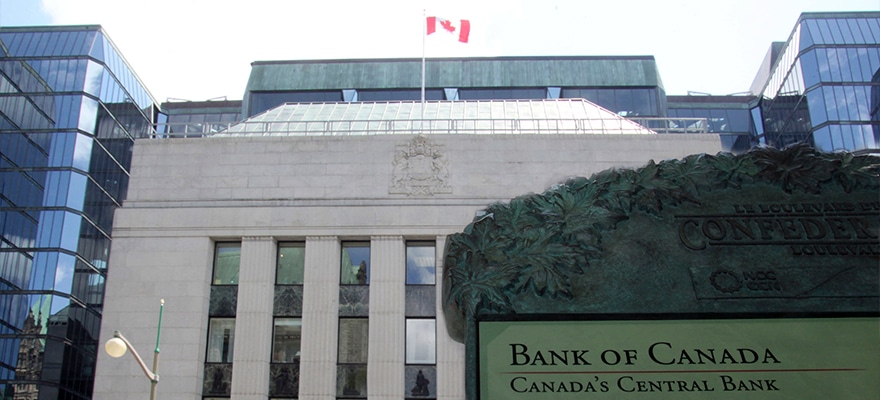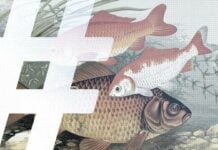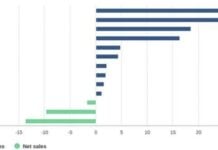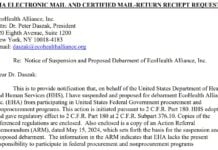
The Bank of Canada’s historic fight against deflation during the COVID recession, and now the startling inflationary surge that has come in the recovery’s wake, will likely bring to an end the central bank’s untarnished streak of profitability.
“We expect the bank’s net interest income to be negative when our third-quarter results are published on Nov. 29,” the central bank said in a statement that was initially provided to the Toronto Star. “The bank’s interest expense is growing because of increases in the interest rate that we pay on deposits.”
Prepare now! Protect your home and cars againts EMP, solar flare and lightnings…
It’s easy to forget that central banks are set up to operate like any other financial institution. The Bank of Canada has a board of directors that oversees management (governor Tiff Macklem and senior deputy governor Carolyn Rogers) on behalf of its shareholders (taxpayers, via the federal government) and it has a balance sheet with assets and liabilities.
Typically, the Bank of Canada’s balance sheet makes money because the liabilities consist almost entirely of bank notes, which don’t pay interest, while on the other side, the central bank earns interest on its assets. The Bank of Canada Act says the central bank must send its profit to the federal treasury at the end of each fiscal year. Recently, that’s been about $1 billion a year.
Prepare Now! You will never go without electricity with this portable power station!
But the Bank of Canada Act predates quantitative easing, or QE, an anti-deflation tactic that involves creating deposits in the form of deposits for creditors at the central bank, and then using those newly created deposits to buy bonds and other financial assets. The Bank of Canada deployed QE for the first time during the COVID crisis, flooding the financial system with the equivalent of hundreds of billions of dollars to help keep downward pressure on interest rates and to increase the capacity of banks to lend money.
An unintended consequence of that policy is that for the first time in its 87-year history, the Bank of Canada is on track to lose money for an extended period, as interest expenses on deposits climb in tandem with the benchmark interest rate, which Macklem has raised by three percentage points since March in an attempt to cool demand that has helped push annual inflation to about eight per cent, the highest level since the early 1980s.
It’s one of the best time to invest in GOLD, SILVER and other PRECIOUS METALS to limit the effects of inflation on your IRA/401K and achieve the retirement peace of mind you deserve…
QE worked, and maybe a little too well, as the economy appears to have entered a phase of “excess demand” at the same time acute supply-chain snarls limited supply of goods, and Russia’s invasion of Ukraine sparked a surge in commodity prices. Canada’s consumer price index is hovering around an annualized pace of eight per cent, compared with the Bank of Canada’s target of two per cent. Policymakers are now executing a hard pivot to get inflation under control by raising interest rates and reversing QE by ending purchases and letting the assets on its balance sheet roll off as they mature.
Some economists think that containing inflation will require triggering a recession. While that remains to be seen, it’s clear that one casualty will be the Bank of Canada’s net interest income, or the difference between revenues from interest-bearing assets and liability costs. The large-scale asset purchases that remain on the balance sheet happened at a time when interest rates were much lower than they are today, and the coupon rate on bonds was relatively higher than the rate paid on deposits.
Initially, QE represented a profitable strategy. The Bank of Canada reported net interest revenue jumped nearly 20 per cent in 2021 from 2020, to about $3.1 billion. The statement, provided by spokesman Paul Badertscher, noted that the the central bank sent the federal government an additional $2.6 billion over those two years. But now, the situation has reversed. The statement said the central bank anticipates losses for the next three years, depending on how its inflation fight goes.
StrangeSounds.org has been banned from ad networks and is now entirely reader-supported CLICK HERE TO SUPPORT MY WORK…
It’s a new challenge for the Bank of Canada, but it’s not alone, as most of the world’s major central banks resorted to QE to fight the recession, and now find themselves battling to keep inflation from hitting double digits.
In New Zealand, the government simply covers potential losses for the Reserve Bank of New Zealand. But the Bank of Canada Act doesn’t allow Macklem to retain net income from previous years to handle shortfalls in the future, nor is there a provision that requires the federal government to make the central bank whole. The issue will almost certainly get sorted; in the meantime, the Bank of Canada said in its statement that it has stopped paying interest on government reserves as a way to reduce liabilities, noting that other central banks have done the same.
Benjamin Tal, deputy chief economist of CIBC Capital Markets, said the Bank of Canada is not in the business of making money and absorbing a loss to stave off what could have been a terrible recession is an acceptable trade-off.
Prepare now! Stock up on Iodine tablets for the next nuclear disaster…
“That’s their way of looking at that and there is no impact on the economy,” Tal said in an email. “They do not lose sleep over it.”
The Bank of Canada reiterated that its focus would be trained on tackling high inflation and that the large-scale assets purchases the bank underwent over the past two years coincided with its mandate to preserve the country’s financial well-being.
“The bank makes policy decisions based on our mandate to keep inflation low, stable and predictable,” the statement said. “We do not make policy decisions to manage our balance sheet.” [Financial Post]














Shows the problem in the first few sentences.They choose to purchase other assets rather than pay bills or save.Whether it’s a person or a country the basic results are the same.Debt load.
Oh Cuntada
Isn’t that funny? Put in commies and socialists to rule you and the economy starts collapsing right on cue. It’s as if…. never mind.
8%? Nah, add a 1. Make it 18% inflation. Same here in our USSA. Socialism fails when you run out of other people’s money. Then, once everyone is broke and starving comes the revolution. Central Banks are mafia.
Bozobiden is pushing for the digital dollar currency reset, and enslavement of humanity. Easy to simply shutdown somebody or a political group with a press of a keystroke. No dissent will be tolerated. ESG scores and carbon footprint shennanigans. You won’t be allowed to complain. Think how many companies and industries operate where you can’t phone in and speak to a live voice to complain. It will be like that, except your phone will be turned off.
At some point this entire mess will implode.